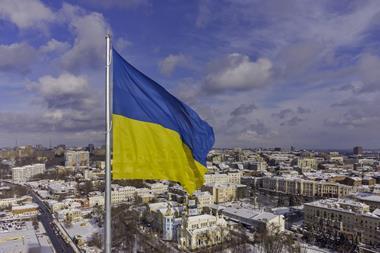Ability of businesses to diversify and ‘hedge’ portfolios and supply chains to reduce dependencies are key to minimising risk exposure
Lloyd’s and Aon published a new report which examines the wide-ranging and long term impacts that the conflict in Ukraine could have on businesses, and the steps they can take to mitigate these risks.
The key findings from the report include:
- In all sectors, the ability of businesses to diversify and ‘hedge’ their portfolios and supply chains to reduce dependence on single suppliers will be key to minimising risk exposure;
- The energy sector will likely be most impacted by the range of risks emerging from the conflict; however energy security and reputational concerns will be a key factor for all sectors in building risk mitigation strategies to respond to the conflict;
- As pertinent as the immediate inflationary impacts, there will be second order effects from reduced food and energy supplies (with Russia alone providing a fifth of the world’s wheat and 40% of Europe’s gas) and higher business costs associated with reshoring supply chains.
- The conflict’s impacts are highly interrelated. For example, building on Lloyd’s Futureset’s recent ‘Shifting Powers’ report, it’s clear escalating geopolitical tensions have triggered a spike in cyber attacks that could have knock on impacts on inflation and market volatility.
The report applies five plausible scenarios to the industries and geographies most affected by the conflict. Each scenario explores the possible short, medium, and long-term effects of the war across a series of themes: supply chains, energy, food security, ESG, the climate transition, inflation and cyber.
The report emphasises the need for insurance, as a key risk transfer mechanism, to help businesses mitigate these interrelated risks and build organisational resilience.
“The conflict in Ukraine has caused devastating human costs and a whole range of interconnected risks across areas like energy, cyber and supply chains. Just take the recent challenges of exporting grain, where geopolitics has in turn affected food security, market volatility and price inflation. A proactive and forward-thinking approach will therefore be key to building resilience against the fallout – and Lloyd’s will deploy its expertise, resources, and risk solutions to support that goal.”
John Neal - Chief Executive Officer, Lloyd’s
“The Ukraine conflict touches us all, both as individuals and businesses. Over time, our world has become increasingly interconnected, and geopolitical events further highlight that a specific risk does not exist in isolation. Our ability to manage deeply related and increasingly volatile risks requires careful thought, detailed planning and effective execution. I hope the front-line perspectives contained in this report help businesses understand the universality of the challenges, the ways they may evolve and how they may best navigate them as they make better-informed decisions.”
Dominic Christian - Global Chairman of Reinsurance Solutions, Aon
Putin exposed as Ukrainian forces recapture more territory
- 1
- 2
- 3
- 4
- 5
- 6
- 7
- 8
- 9
- 10
- 11
- 12
- 13
- 14
- 15
- 16
 Currently reading
Currently readingLloyd’s, Aon examine long-term impacts of Ukraine conflict
- 17
- 18
- 19






































No comments yet